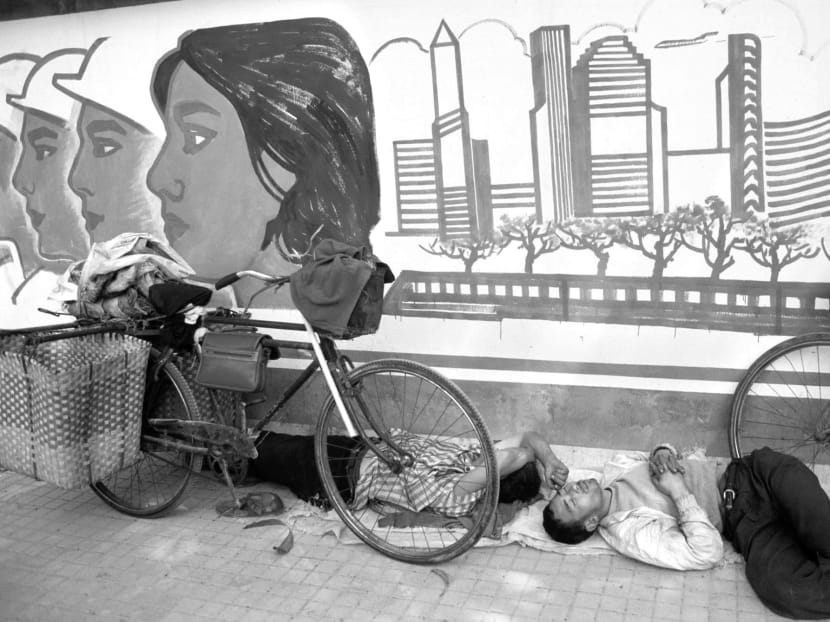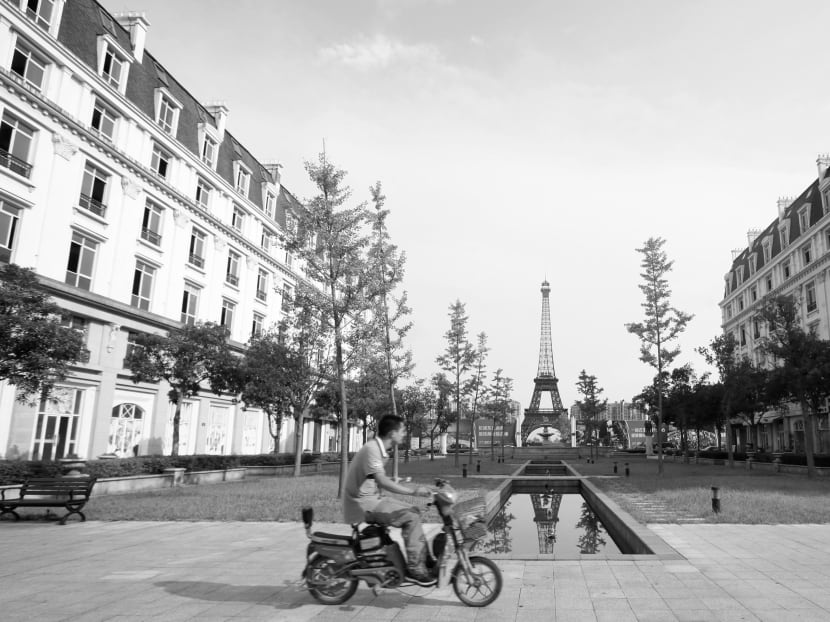Journey from luxury to thrift will test Beijing’s mettle
Thrift as a virtue is embedded deep within China’s culture. The written ideograms for words such as “save” and “store” sparkle with the feel-good symbols for grain, fields, silk and children.


Thrift as a virtue is embedded deep within China’s culture. The written ideograms for words such as “save” and “store” sparkle with the feel-good symbols for grain, fields, silk and children.
By contrast, the character for debt shows a man standing — forlornly one imagines — next to a pile of cowrie shells, an ancient form of IOU. Children are taught that “diligence is a cash cow and thrift is a gold mine”, while adults are warned in one somewhat humorous proverb that “going to bed early to save candles is not economical if the result is twins”.
Money, or the lack of it, was also a main motive behind the Communist Party’s decision to open the economy to foreign investors more than three decades ago. So acute was the cash crunch then that when in 1974 Deng Xiaoping — the subsequent architect of capitalist reforms — prepared to lead a delegation to the United Nations, he found that only US$38,000 (S$48,500) in foreign currency remained in state coffers to pay for his trip.
So why, given such potent reminders of the importance of money management, has China’s government in the past five years swerved so much off the financial straight and narrow?
Total debts owed by the government, companies and households have ballooned to 240 per cent of gross domestic product, virtually double the level at the time of the global financial crisis.
This ratio, it is true, remains modest next to some in the West; the United States’ debts stand at 322 per cent of GDP, Ireland’s at more than 400 per cent, while Greece and Spain are at about 300 per cent each.
But the speed of increase in China’s leverage has been beyond parallel and because of elevated Chinese interest rates (estimated by Fitch, a credit-rating agency, to average 7 per cent), the cost of debt servicing has risen much faster than in other indebted countries.
UNPAID LOANS SAPPING COMMERCIAL DYNAMISM
This year, China is set to pay an interest bill of about US$1.7 trillion, an amount not far short of India’s entire GDP last year (US$1.87 trillion) but larger than the economies of South Korea, Mexico and Indonesia.
Ironically, the spending splurge that generated these debts took place as Beijing kept up atavistic exhortations to be thrifty.
Under Mr Hu Jintao, the President during the financial crisis, billboards setting out “Eight Honours and Eight Shames” were erected in cities across the country, telling people to “work hard and live plainly; do not wallow in luxuries and pleasures”. Mr Xi Jinping, the current President, has cranked up the tempo still further with a national frugality campaign.
One answer to the question of why Beijing has fallen so rapidly into hock is that it had little choice but to do so; the liabilities represent the costs incurred from responding to the global crisis. The collapse of US demand in 2008 hammered China’s export sector, throwing roughly 30 million people out of work in a matter of months and obliging Beijing to launch a stimulus programme that drew impetus from the ambitions of local governments to demonstrate their manifest destiny.
A dowdy northern provincial capital became famous for building the second-largest building in the world, after the Pentagon, to serve as its administrative headquarters. New roads, railways, ports, airports, bridges and industrial parks took form everywhere. About 9,700 sq km in new urban precincts — equivalent to about 25 cities the size of Detroit — sprang up between 2008 and 2012, said Caixin, a Chinese magazine.
In some places, “ghost cities” with fewer than 1,000 inhabitants per square kilometre now stand as monuments to the triumphs of local exuberance over actual demand.
The bill for most of this frenzy has fallen upon local governments and their thousands of “financing vehicles”. Indeed, their debts and contingent liabilities form the fastest-growing part of China’s total liabilities, alongside those of the heavy industrial companies that made the steel, cement and equipment that fed the construction boom.
But aside from providing the stimulus to revive a flagging economy, the rising tide of Chinese debt also derives from subsiding economic competitiveness. Thus when Chinese officials last week announced the slowest quarterly GDP growth rate — 7.3 per cent — in five years, they did so with a warning that the world should prepare itself for a “new normal” of slower economic expansion. What they did not hint at was the increasingly central role that the welter of unpaid loans is playing in sapping China’s commercial dynamism.
Companies are affected because, based on estimates by Standard Chartered bank, about 32 per cent of new credit these days is used simply to pay off the interest on existing debts.
Consumers are compromised because overall debt service charges now equate to about US$1,290 out of the annual per capita GDP of US$6,800. Local governments — still the main agents of investment — are also feeling the pinch, as was clear from a Finance Ministry proposal last week to allow them to issue new bonds purely to fund the repayment of their maturing liabilities.
Fitch sees the confluence of these pressures creating a fundamental inflection point in one of the greatest growth narratives in history. China’s rapid “catch-up” phase — during which growth averaged 10.2 per cent over three decades — is giving way to a credit-fuelled expansion that is getting progressively slower.
Managing this will not be easy. To quote one Chinese proverb: “To change from a thrifty lifestyle to one of luxury is easy, to shift from luxury back to thrift is hard.”
ABOUT THE AUTHOR:
James Kynge is The Financial Times’ emerging markets editor and associate editor. He has been based as a journalist in Asia over the past 27 years. His book, China Shakes The World, was an international bestseller translated into 19 languages.






